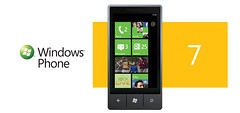Looking for last-minute tax donations? Why not support the open Internet?
December 30, 2011
Here in the USA, this is something that many of us think about in these final days. It's a last chance we have to make tax-deductible donations that can then be used to potentially lower the taxes you pay to the US government when we go through all that fun over the next few months.
Now, there are admittedly a zillion great causes and organizations out there to whom you can give donations. Local organizations, global organizations, relief organizations, churches and religious groups, arts organizations, environmental groups, sports groups, school groups, cancer and other research organizations... so, so many...
In the midst of all that, I'd also encourage you to think about possibly making donations to organizations helping in the fight to maintain an "open Internet".
2012 promises to be a challenging year for the Internet... not just with the Stop Online Piracy Act (SOPA) and it's PROTECT-IP cousin here in the US... but with similar legislation cropping up all around the world. With various governments seeking to put restrictions on the Internet in their country. With upcoming global telecommunications treaties and discussions. With various industries who have been severely disrupted by the Internet. With large companies wanting to lock people in to specific platforms and systems. With... with... with... the list goes on and on...
The Internet has now become a critical communications medium with so many players out there now believing they should play a role.
We need to ensure that the Internet remains open for "permissionless innovation"... for access to the services and applications we want to use... for access to everyone all around the world...
And unfortunately, the powers that would like to close and restrict the openness of the Internet are also powers that have a ton of money and a ton of lobbyists, lawyers and more.
So if you are looking for a way to help make a difference in 2012, may I suggest please helping out some of the organizations that are out there fighting to keep the Internet open?
There are again, many such organizations fighting the good fight for the open Internet, and I'm sure all of them would welcome the contributions. If you aren't aware of any such organizations in your region, here are four I personally believe are doing valuable work:
- Internet Society (ISOC)
- Center for Democracy and Technology (CDT)
- Electronic Frontier Foundation (EFF)
- Public Knowledge
And yes, I'm now a staff member for the Internet Society but I've been a donor to ISOC for several years prior to joining as a staff member in September. There are also many other groups helping in local areas throughout the world.
THE POINT IS TO DONATE TO SOME ORGANIZATION TO HELP KEEP THE INTERNET OPEN!
Or even more than one! If you're in the US, you have a little over 24 hours to make those final contributions.
We've got a wonderful resource in the open Internet we have today... let's keep it open!
P.S. The four organizations I list above are all 501(c)(3) nonprofit organizations under US tax law. If you are looking at other organizations you will want to just check to ensure that donations to them are in fact tax-deductible (if your point right now is donate for tax purposes).
P.P.S. There are, of course, many others working in complementary ways... the Electronic Privacy Information Center (EPIC) is doing great work on critical privacy issues. I love all that the Sunlight Foundation is doing for open government and there are so many more. All of them could use donations!
If you found this post interesting or useful, please consider either:
- following me on Twitter;
- adding me to a circle on Google+;
- subscribing to my email newsletter; or
- subscribing to the RSS feed
If you found this post interesting or useful, please consider either:
- following me on Mastodon;
- following me on Twitter;
- following me on SoundCloud;
- subscribing to my email newsletter; or
- subscribing to the RSS feed

